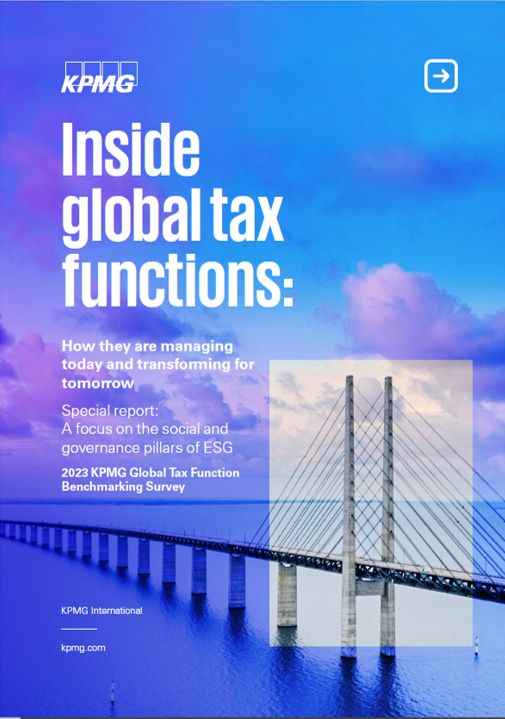How does your tax function stack up when it comes to ESG?
Seasoned tax leaders make key decisions every day to evolve their tax function and keep pace with unprecedented pressures, disruptive technological advancements, heightened compliance obligations and more — all while seeking to demonstrate value within the organization and beyond.
Benchmarking against comparable tax functions can be a powerful tool for reflecting on your organization's current position and planning how to prepare for the future. To help, KPMG International conducts an ongoing survey of the tax functions in multinational organizations around the world. The data gained offers insights into tax functions globally and how they are evolving in their structure, governance, priorities and performance measures, through the use of technology and more.
In this special focus report, we take a deeper dive into tax functions and how they are evolving in their support for their company’s ESG objectives.

How does your company’s tax function stack up when it comes to supporting environmental, social and governance (ESG) goals?
Explore this special report to find out.
Download PDF (826 KB) ⤓
Key takeaways
Policy frameworks
Design of a policy framework to govern the business’s approach to tax and ESG seems to be a work in progress for many companies. About one-quarter of respondent companies have plans to strengthen their policies by improving their disclosures around risk tolerance and governance.
Impact of tax on ESG goals
While most companies seem to be aware of the impacts of tax on ESG goals, only one in five chief tax officers said that tax is a significant consideration in their company’s overall ESG initiatives and that the tax function plays a role in driving ESG strategy.
Approaches to tax and ESG
Survey results suggest that a significant minority of companies have not moved very far in considering their approach tax and ESG matters, which may put them at a disadvantage going forward. For example, one in five respondents has no ESG policy related to tax and no plans to create one. Half of the respondents do not leverage tax data and analytic tools to prepare ESG analyses and indicated they are not yet considering this.
Immediate priorities
Among most companies, however, even though much remains to be done, work is underway to establish robust policy frameworks for tax and ESG. When asked to name their immediate top priority for ESG and tax, chief tax officers most commonly ranked developing or updating their public tax strategy/policy, followed by improving tax governance and controls to ensure ESG goals are met.
Connect with us
Related content







